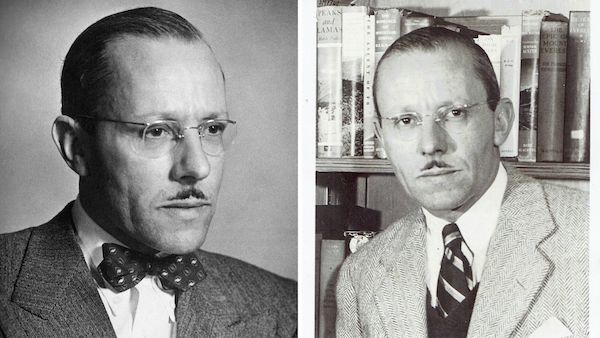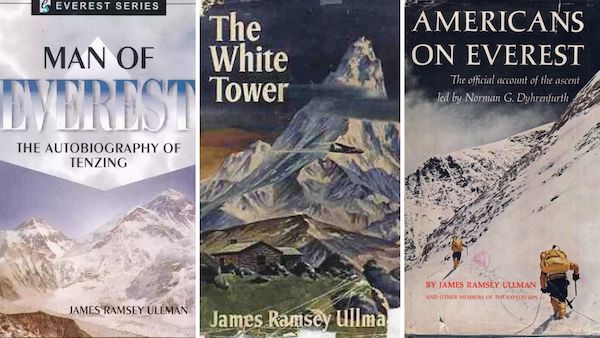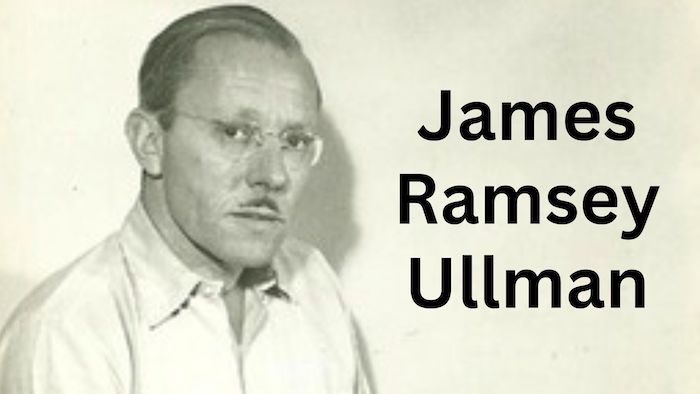With his legacy shaped by his mountaineering and literary excellence, James Ramsey Ullman led a captivating life of adventure. Born in 1907 Ullman’s life encompassed a unique fusion of mountaineering expeditions and prolific writing endeavors.
His significance deepened as a member of the 1963 American Everest Expedition, contributing as the official historian. In addition to scaling peaks, Ullman was a famous writer. Taking part in a ghostwriting collaboration with Tenzing Norgay, he helped the Sherpa mountaineer bring his autobiography to life.
Who Was James Ramsey Ullman?

James Ramsey Ullman born in New York City on August 21, 1907 was an American writer and mountaineer. With a love for adventure and writing, he traveled the world writing about his journeys. Despite not being a “high end” climber, his literary capabilities elevated him to an honorary status within the climbing community.
After completing his education at Princeton in 1929, he embarked on a career that transitioned from journalism to theater. Initially, he worked as a reporter for a Brooklyn newspaper, but his path soon diverged toward the world of theater. His roles encompassed that of a playwright and, from 1933 to 1939, as a producer or co-producer for dozens of Broadway plays. After 1939 a significant shift in his life occurred, with Ullman becoming dedicated to writing and exploring the world.
Tragically, James Ullman’s life was cut short by cancer, and he passed away in Boston on July 5, 1971.
James Ullman’s Books: Mountaineering and Geography
Most of Ullman’s books revolved around mountaineering and geography. His works were a blend of adventure and exploration. All which offered readers a glimpse into the world of snow covered mountains and distant landscapes from around the world.
During James’s literary pursuits, he found himself immersed in travel, which often blended with and influenced his writing. His travels led him deep into the Amazon jungle resulting in the creation of “The Other Side of the Mountain” (1938). As well as a later novel “River of the Sun” (1951).
Another notable work, “Windom’s Way” (1952), wove a narrative centered around an American doctor in Southeast Asia. “The Sands of Karakorum” (1953) unfolded the tale of a missionary’s enigmatic disappearance within the heart of Communist China.
He traveled to the Rockies, Andes, Alps, Himalayas, and even Africa, where he was able to summit Kilimanjaro. The Alps provided the setting for two of his novels: “The White Tower” (1945) and “Banner in the Sky” (1954).
In 1957, Ullman embarked on a European and African expedition, retracing the path of Arthur Rimbaud. This journey provided the material for his ambitious biographical novel, “The Day on Fire” (1958), which took eighteen months to write.
Ullman’s Notable Works and Cinematic Adaptations

- Banner in the Sky: A novel inspired by the true story of the first Matterhorn ascent. Banner in the Sky also received the Newbery Honor in 1955. Additionally, the book’s adaptation, “Third Man on the Mountain,” was filmed in Switzerland.
- The White Tower: A work featuring actors Glenn Ford and Lloyd Bridges.
- Americans on Everest: A book detailing the 1963 American Mount Everest Expedition, highlighting the historic achievement of the first American to reach the summit. This work was published in 1964.
Many of James Ramsey Ullman’s works were made into small-scale films, including High Conquest, River of The Sun, Windom’s Way, and Banner in the Sky. which. All these titles were transformed into small-scale films.
James Ullman Ghost Wrote Tenzing Norgay’s Autobiography:
Owing to his dual roles as a mountaineer and a writer, Ullman emerged as the ideal candidate for the task of ghostwriting the autobiography of Tenzing Norgay, resulting in “Tiger of the Snows”, later released as Man of Everest (affiliate link).
“Man of Everest: The Autobiography of Tenzing Norgay” stands as a testament to the remarkable journey of the Sherpa mountaineer. Narrated to James Ramsey Ullman, this work delves into the life of Tenzing Norgay, who, alongside Edmund Hillary, were the first to summit Everest in 1953.
The narrative unfolds as recounted to the author shortly after this monumental feat. Ullman’s approach to the biography is marked by sensitivity, offering a profound portrayal of a modest man who, almost overnight, became a global icon for his triumphant ascent in the distant mountains of his homeland.
James Ramsey Ullman and the 1963 American Everest Expedition:
Ullman’s participation in the 1963 American Mount Everest Expedition as the official historian underscored his commitment to preserving climbing history. While health issues prevented him from summiting, he authored the authoritative account, Americans on Everest: The Official Account of the Ascent, published in 1964.
The American Everest Expedition placed six climbers atop the summit of Everest. Among the climbers, four followed the well-established path via the South Col route, including Jim Whittaker, the first American to reach Everest’s summit. Shortly after, Tom Hornbein and Willi Unsoeld blazed a trail of their own, ascending the uncharted Everest West Ridge.
James Ullman was the first to break the news of the American’s successful Expedition. Whereas, on May 4, 1963, Ullman sent a dispatch regarding the American Mount Everest Expedition’s successful climb. Moreover, he extensively documented that expedition in his book Americans on Everest: The official account of the ascent led by Norman G. Dyhrenfurth.
James Ramsey Ullman: The Life of an Adventurer and Writer
The life of James Ramsey Ullman stands as a remarkable intersection of adventure and artistry. His impact on both mountaineering and literature through his extensive writings, transported readers to distant peaks and uncharted territories, capturing the essence of exploration.
Ulman’s involvement in the 1963 American Everest Expedition, coupled with his ghostwriting of Tenzing Norgay’s biography, showcases his love for both the mountains and writing. Although his life was cut short due to cancer in 1971, James Ramsey Ullman’s adventures live on through the countless books he wrote.
